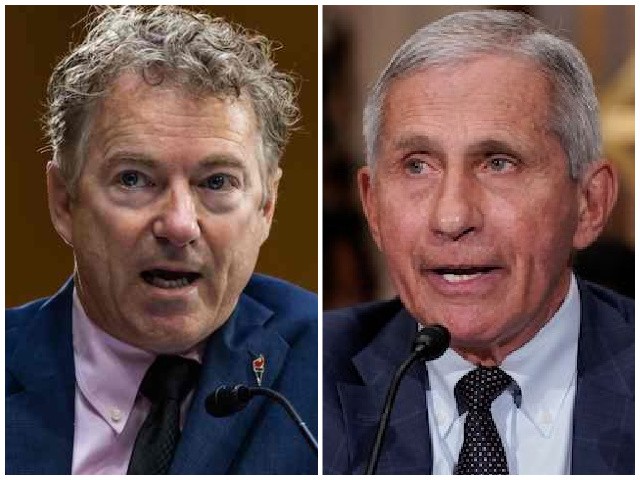Dr. Francis Collins Resurfaces as Biden’s ‘Science Adviser’ After Retiring amid Scandal
Dr. Francis Collins has rejoined President Biden’s team as a “science adviser” after retiring late last year from the National Institutes of Health (NIH) amid scandal.
Collins will rejoin Biden’s team following Dr. Eric Lander’s resignation as “science adviser” after “bullying his colleagues” in violations of the White House’s workplace policy,” the New York Times reported. After the revelations came to light, Lander promptly apologized and subsequently resigned.
Collins’ recurring proximity to the White House perhaps speaks to how much administrative state knowledge Collins possesses after working as the NHI for 12 years.
Collins, 71, retired in early October from the NIH amid a political scandal. Just after his retirement, molecular biologist Richard H. Ebright published a letter from the NIH showing that the NIH’s grant money funded gain of function research in communist China’s Wuhan lab. Breitbart News reported:
Ebright tweeted that in the letter, the NIH “corrects untruthful assertions by NIH Director Collins and NIAID Director Fauci that NIH had not funded gain-of-function research in Wuhan.”
Furthermore, Ebright noted that the NIH’s letter appeared to show that EcoHealth Alliance violated the Terms and Conditions of the NIH grant.
The NIH said “out of an abundance of caution and as an additional layer of oversight, language was included in the terms and conditions of the grant award to EcoHealth that outlined criteria for a secondary review, such as a requirement that the grantee report immediately a one log increase in growth.”
Members of Congress were quick to point to the alleged wrongdoing overseen by Collins and Dr. Anthony Fauci. “‘I told you so’ doesn’t even begin to cover it here,” Sen. Rand Paul (R-KY) said.
“Fauci knew. He should be investigated and prosecuted to the fullest extent of the law,” Sen. Tom Cotton (R-AR) said.
“To call this a bombshell is an understatement. Dr. Fauci and others claimed under oath the NIH didn’t fund gain of research function in the Wuhan Lab. Now the obvious is confirmed: they did,” former Trump chief of staff Mark Meadows tweeted.
Fauci hearings have dismissed the NIH’s alleged funding of the Wuhan lab in Senate hearings.
“Senator Paul, with all due respect, you are entirely and completely incorrect that the NIH has not never and does not now fund gain-of-function research in the Wuhan Institute of Virology,” Fauci told Sen. Paul in May. “I totally resent the lie you are now propagating.”

Sen. Rand Paul (R-KY) questions Dr. Anthony Fauci, director of the National Institute of Allergy and Infectious Diseases, about gain of function research during a Senate Health, Education, Labor and Pensions Committee hearing (JIM LO SCALZO/POOL/AFP via Getty Images and J. Scott Applewhite/POOL/AFP via Getty Images).
Since Collins has resigned, the NIH has acknowledged that the agency’s “support for virus-enhancing research adds more heat to the ongoing debate over whether a lab leak could have sparked the pandemic,” Vanity Fair reported about the scandal:
On Wednesday, the NIH sent a letter to members of the House Committee on Energy and Commerce that acknowledged two facts. One was that EcoHealth Alliance, a New York City–based nonprofit that partners with far-flung laboratories to research and prevent the outbreak of emerging diseases, did indeed enhance a bat coronavirus to become potentially more infectious to humans, which the NIH letter described as an “unexpected result” of the research it funded that was carried out in partnership with the Wuhan Institute of Virology. The second was that EcoHealth Alliance violated the terms of its grant conditions stipulating that it had to report if its research increased the viral growth of a pathogen by tenfold.
The NIH based these disclosures on a research progress report that EcoHealth Alliance sent to the agency in August, roughly two years after it was supposed to. An NIH spokesperson told Vanity Fair that Dr. Fauci was “entirely truthful in his statements to Congress,” and that he did not have the progress report that detailed the controversial research at the time he testified in July. But EcoHealth Alliance appeared to contradict that claim, and said in a statement: “These data were reported as soon as we were made aware, in our year four report in April 2018.”
Follow Wendell Husebø on Twitter and Gettr @WendellHusebø.
Comments are closed.
